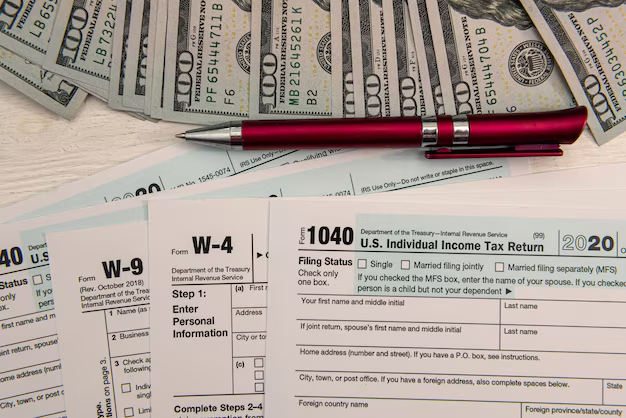Your Guide to Can Irs Garnish Wages
What You Get:
Free Guide
Free, helpful information about IRS FAQ and related Can Irs Garnish Wages topics.
Helpful Information
Get clear and easy-to-understand details about Can Irs Garnish Wages topics and resources.
Personalized Offers
Answer a few optional questions to receive offers or information related to IRS FAQ. The survey is optional and not required to access your free guide.
Can the IRS Garnish Your Wages? Unpacking What You Need to Know
Have you ever wondered what happens when you owe taxes to the IRS? If you're concerned about the possibility of your wages being garnished, you're not alone. Many individuals face tax-related challenges that impact their finances. Understanding how the IRS can garnish wages—and what you can do about it—empowers you to manage your financial situation better. Let’s explore this topic thoroughly, covering the essential details and offering practical insights.
Understanding Wage Garnishment
What Is Wage Garnishment?
Wage garnishment is a legal procedure where a portion of your earnings is withheld by your employer to pay off your debt. When it comes to tax debts, the IRS has the authority to garnish wages without a court order, unlike other creditors such as credit card companies.
How Does IRS Wage Garnishment Work?
The process begins when the IRS sends a notice of levy to your employer. This notice instructs the employer to withhold a specified amount from your paycheck and forward it to the IRS. Before reaching this stage, the IRS usually sends a series of notices warning the taxpayer of the impending levy.
Conditions for Wage Garnishment
- Notice Requirements: The IRS must send you a final notice of intent to levy and a notice of your right to a hearing at least 30 days prior to the levy.
- Time for Response: Within these 30 days, you have the opportunity to address the tax debt or request a collection due process hearing.
- Exempt Income: Certain amounts are exempt based on your filing status and number of dependents, ensuring you still receive some earnings each paycheck.
Preparing for the Possibility
Recognizing the Signs
Before wage garnishment occurs, you’ll typically receive multiple communications from the IRS. Recognizing these signs is crucial:
- CP501 Notice: Initial reminder about the owed taxes.
- CP504 Notice: URGENT final notice before the IRS plans to levy your assets.
Responding to IRS Notices
Ignoring IRS notices can lead to immediate wage garnishment. Here’s how to handle them:
- Review Notices: Examine the notices carefully for accuracy and understand the amounts claimed.
- Contact the IRS: Engage with the IRS to clarify any discrepancies or to set up a payment plan.
- Seek Professional Help: Consult with a tax professional or attorney if needed to determine the best course of action.
Payment Options
Addressing your tax debt proactively can prevent wage garnishment:
- Installment Agreements: Arranging a payment plan can make dealing with your debt more manageable.
- Offer in Compromise: A settlement option where you pay less than the full amount if you qualify.
- Currently Not Collectible Status: Temporary relief if you cannot pay due to financial hardship.
Navigating Life with Wage Garnishment
Managing Your Budget
Living with reduced income can be challenging. Here’s how you can manage your finances effectively:
- Adjust Expenses: Prioritize essential expenses and cut non-essentials.
- Increase Income: Consider part-time work or freelance opportunities.
Communicating with Your Employer
While employers are legally obliged to comply with IRS levies, maintaining open communication ensures transparency and understanding.
- Inform Your HR Department: Share details of your situation, ensuring your work environment remains supportive.
- Manage Personal Privacy: While honesty is important, sharing only what’s necessary protects your privacy.
Legal Remedies and Rights
Understanding your rights offers protection:
- Appeal Rights: File an appeal if you believe the levy is incorrect or inappropriate.
- Wrongful Levy Release: If wrongfully garnished, you may request a release of the levy through the IRS.
Practical Consumer Tips
Summarizing the key takeaways can be useful as you navigate this challenge:
🌟 Stay Proactive: Respond to IRS notices promptly to avoid garnishment.
💡 Consider Payment Solutions: Explore installment agreements or offers in compromise.
👥 Seek Professional Guidance: Engage a tax professional for personalized advice.
🕵️♂️ Know Your Rights: Exercise your right to appeal or negotiate the garnishment.
💸 Revise Financial Plans: Adjust your budget and expand income sources to cope with changes.
Conclusion
Understanding the intricacies of IRS wage garnishment provides peace of mind and directs you toward effective solutions. From recognizing the warning signs to actively engaging with your tax obligations, each step helps to mitigate the impact on your financial health. Taking control of your situation with informed actions not only alleviates stress but also sets a foundation for future financial stability. Embrace professional advice and leverage your rights to ensure your journey through tax challenges remains as smooth as possible.
What You Get:
Free IRS FAQ Guide
Free, helpful information about Can Irs Garnish Wages and related resources.

Helpful Information
Get clear, easy-to-understand details about Can Irs Garnish Wages topics.

Optional Personalized Offers
Answer a few optional questions to see offers or information related to IRS FAQ. Participation is not required to get your free guide.


Discover More
- Are Irs Economic
- Are Irs Economic Impact Payments Still Available
- Are We Getting Ctc Payments In 2024 Irs
- Can Form 8822 Be Faxed To Irs
- Can I Brown Act Irs
- Can I Call The Irs
- Can I Edit Any Irs Payment After I Did It
- Can I Go To Irs For Support
- Can I Have The Irs Apply My Overpayment If Divorced
- Can I Make Payments To The Irs
